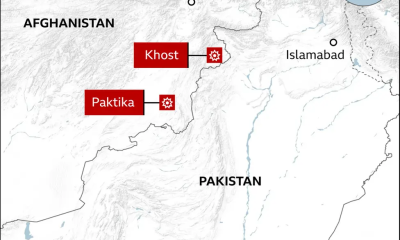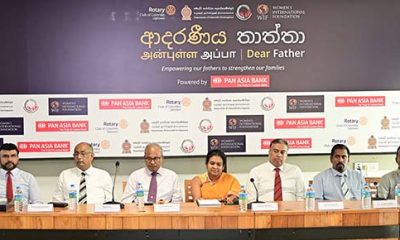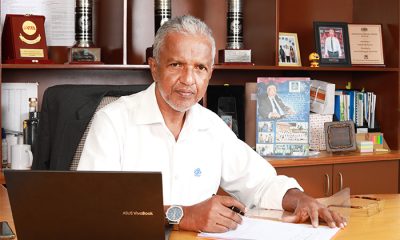Opinion
Ensure fairness in delivery of goods
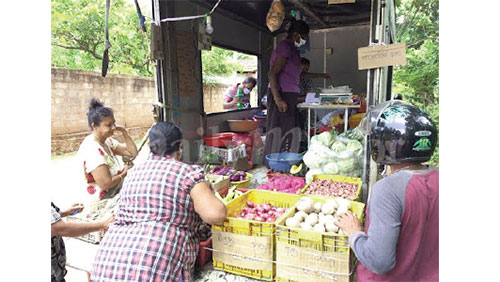
When there is a lockdown, or restriction of movements, people seem to stock up items, which puts a strain on the supply chain and also the availability of essential items. In situations like this, the government should mediate for the fairness of all. Also, the delivery costs impact the poor and those ordering in small quantities.
The drive to place large orders is sometimes driven by delivery costs, small order costs, minimum orders. Ideally, small and just in time orders, should be encouraged. For this reason, the government should encourage that large establishments do not charge a delivery fee or place any restriction, or encouragements, like discounts or rebates for large orders; and also they should regularly deliver to areas around their vicinity. Also, there should be regular delivery routes, covering every area, so that regular, but small orders, can be placed. Residents should be made aware of the delivery schedule of the area by multiple means, so they can plan what is needed.
The state banks should provide loan facilities for large establishments, whose primary business is currently not delivery or logistics or consumer goods, to take up such activities. There should be restrictions on the disposal of vehicles bought with such loans. Capital expenditure would force the enterprise to keep their delivery fleet operational, even when lock- down restrictions are lifted.
Also, businesses should be encouraged to charge for delivery in proportion to the value of the order above a free tier, within a certain time period, which would accommodate the majority of normal consumers. E.g. If the free tier is Rs. 20k per week and there is a 3% delivery charge, Rs. 50k worth of orders within a week would be charged Rs. (50,000 – 20,000) * 0.03 = Rs. 900. This will further discourage large orders, which may be abusively over stocking, while allowing the general consumers to order within their normal consumption pattern.
Also, eliminating the cost of delivery would reduce foot traffic to stores outside of lockdown days, hence helping curb the pandemic situation.
Removing the cost of order can lead to smaller orders and availability of goods to all.
SUMINDA DHARMASENA
Opinion
Nuclear-based energy for Sri Lanka
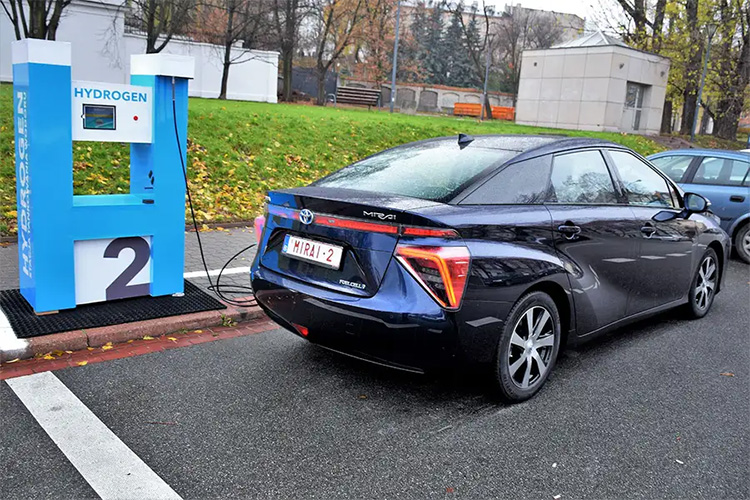
BY S. P. U. S. Wickramasinghe B. Sc.
spupalisw@yahoo.com
Six countries have offered to build nuclear power plants in Sri Lanka, The Island of 08 March has reported, quoting Prof. S. R. D. Rosa, Chairman – Sri Lanka Atomic Energy Board.
The proposal that Sri Lanka invest in nuclear energy surfaces from time to time. I see two major negatives that will accrue to this country if this proposal is implemented.
Sri Lanka imports all the energy it requires, viz petroleum-based material and coal. Investing in nuclear energy will not solve its problem. In fact, the draw on its external resources could be higher level in the event of having to import of raw materials for nuclear power plants.
The second constraint is the possibility of leaks or nuclear accidents. The Chernobyl disaster took place about 40 years ago. It is reported that inhabitation of that area is still not permitted.
A few years ago, there was a proposal to stockpile depleted radioactive materials on an abandoned rubber estate in Malabe. Residents of the area protested against this proposal. I did a study of nuclear accidents in Europe and found that at one particular plant, there were about 10 leaks due to minor problems – corroded metal work.
The Atomic Energy Authority (SL) announced that the depleted cargo would be deposited in keeping with International Regulations. Information about such international regulations or practices were never divulged. When the project was abandoned, I went there to inspect what had been undertaken. There were no indications that the pits that were dug would be covered with concrete layers.
In this village, most households are dependent on wells for their water needs. There is also a paddy field. If the project had been implemented, the entire area would have been contaminated during torrential rains.
Why do we place our faith in such exotic, dangerous technologies, when this country has the facilities which can produce a fuel that is GHG (Green House Gases) free and can concurrently help to generate electricity?
I am referring to an alcohol called Butyl alcohol, which is a one to one substitute for both petrol and diesel. One researcher who conducted a trial run of 10,000 miles in the US state in a 15-year-old Buick car reported that with Butyl alcohol he achieved a performance of 25 miles per gallon as against 22 miles per gallon with petrol.
How do you produce Butyl alcohol?
Butyl alcohol can be produced by the fermentation of sugars (glucose) using specific bacteria. The most common bacterium is from the Clostridium group. A problem with this group of bacteria is that they can tolerate Butyl alcohol in the fermenting base up to about 2%. Researchers, Rajesh Kumar Sahoo, A. Das, M Gaur, S. Dey, S. Sahoo and E. Subudhi reported in 2019 that Pseudomonas would yield 6.0% and faecal bacteria 3.5%
I believe that the Pseudomonas bacterium is found in this country. If it has not been identified, it is worthwhile for our bacteriologists to proceed to search for it.
One of the raw materials for this process is jackfruit – Artocarpus heterophyllus. Not the 80-foot-tall variety but the shorter one that is about 20-foot-tall. This has been developed at the HORTI institute of the Agricultural department at Peradeniya. A hectare of this plant can yield 100 tons.
The second plant that could provide raw material is banana. I refer specifically to sour plantain. This has material that can be converted to sugar and is slightly acidic to taste, which is sine qua non for fermentation. This plant with its wide canopy will prevent the soil from drying up, and provide mulch and nutrition to jack fruit trees.
The third is the coconut plant – in fact, coconut water, which has sugar in it.
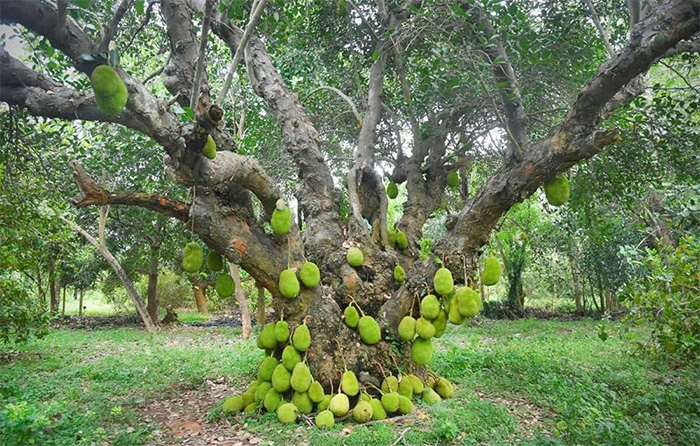
Jackfruit trees
The Central Bank of Sri Lanka has reported that the population of Sri Lanka was 21,919,000 in 2020. Supposing a four-member household consumes three coconuts a week for cooking, the volume of coconut water that could be harvested is 21,919,000/4x 3x52x 0.150 = 128,226,150 lt.
There are over 1,000,000 small /medium size food outlets in the country, some of them consuming about 80 nuts a day.
It will take at least five years to install a nuclear energy plant. During that period, if the organisation and the logistics are put in place, the country could find self-sufficiency in fuel and energy. This will help generate employment opportunities.
There is a non-governmental organisation, which promotes jackfruit cultivation. By 2012, it had planted about 1,000,000 jackfruit trees.
With proper leadership, organisation and proper logistics. We can make our country self-sufficient in fuel.
One country that has made it a policy to produce Butyl alcohol is China.
The products of this fermentation are Butyl alcohol, Ethyl alcohol, Acetone, Hydrogen and Carbon dioxide.
Butyl alcohol can be used in place of petrol and diesel. Ethyl alcohol can be used in place of diesel after mixing with ignition improvers, and hydrogen can be used in place of petrol or to generate electricity via fuel cells and carbon dioxide has been used to propel small planes, motor boats and Ref Cetonia engines.
There are reports that distilling Butyl alcohol is difficult. Nothing is further from the truth. I learnt distillation not from books but from the Stillmen and Fermentation Staff at the Distillery at Kantale and in Guyana. They are the best teachers.
I do hope that a university in Sri Lanka will undertake a study of products to replace petrol, diesel and coal in the near future.
There are some teething problems that have to be sorted out, and they include the fabrication of the distillation equipment, dehydration of Butyl alcohol produced in fermentation. The critical requirements are assistance for conducting research through 24×7 or may be 24x7x52 hrs sourcing a microbiologist to search for Pseudomonas bacterium or to import samples, quality analysis during the process.
Opinion
CBSL salary increase: Charting a path forward for Sri Lanka

By Lalin I De Silva
The recent decision by the Central Bank of Sri Lanka to increase the salaries of bank employees has ignited a storm of controversy, drawing sharp criticism from both the public and the Parliament. The move, which granted the Central Bank self-regulation rights unprecedented in other state sector organizations, has raised concerns about accountability and transparency within the country’s financial institutions.
At the heart of the matter lies the absence of a National Pay Policy, a critical deficiency in Sri Lanka’s state policies. Unlike countries such as the United States, which have established platforms like www.O’net.org to address similar issues, Sri Lanka lacks a comprehensive framework to ensure fair and equitable compensation across its public sector.
The dearth of Human Resources Management (HRM) concepts in state administration exacerbates the problem. While the Treasury’s management division has outlined recruitment guidelines, these remain vague and non-binding, contributing to growing frustrations and hindering the country’s development. With approximately 8 million employees under its purview, Sri Lanka’s management of human resources lags far behind international standards.
Wages, salaries, and rewards collectively constitute the total compensation package that an employee receives for their work. Each component serves a distinct purpose and is typically defined as follows:
Wages: Wages typically refer to the hourly rate or payment based on the number of hours worked by an employee. It is commonly associated with jobs that are paid on an hourly basis, especially in industries such as retail, hospitality, or manufacturing. Wages are often subject to minimum wage laws set by governments and may vary based on factors such as overtime, shift differentials, and bonuses tied to performance. Hourly rates are yet to be regularized in the Sri Lankan context.
Salaries: Salaries are fixed payments made to employees on a regular basis, typically on a monthly or annual schedule, regardless of the number of hours worked. This form of compensation is commonly associated with professional or managerial positions and is often negotiated as part of an overall employment contract. Salaries are usually based on factors such as job responsibilities, experience, education, and market demand for specific skills.
Rewards: Rewards encompass various forms of additional compensation beyond base wages or salaries, designed to recognise and incentivize employee performance, loyalty, or contribution to organisational goals. This can include bonuses, commissions, profit-sharing, stock options, employee benefits (such as healthcare, retirement plans, and paid time off), recognition programs, and other non-monetary incentives like career development opportunities or flexible work arrangements. Most employees in the state sector are still to gain from total rewards concept. The state sector employees are purposely kept away from ‘high performance-oriented reward structure” and blame them often for ‘inefficiency’. Is it fair?
“It is a widely recognised fact that salaried employees typically utilize only 30% of their total capacity for performance, leaving a significant 70% untapped potential, which must be unlocked through effective employee motivation strategies. This approach mirrors the practices adopted by developed countries.”
The total compensation package combines these elements to provide a comprehensive and competitive remuneration structure that attracts and retains talent, motivates employees to perform at their best, and aligns with the organisation’s strategic objectives. It is important for employers to carefully design and communicate their compensation packages to ensure fairness, transparency, and compliance with legal and regulatory requirements, while also fostering a positive workplace culture and employee engagement.
Calls for immediate action to rectify this situation have grown louder, with demands for the establishment of a dedicated National HRM Ministry gaining traction. Critics argue that Sri Lanka’s outdated education system is partly to blame, highlighting the need to incorporate modern HRM practices into the national curriculum.
Key components necessary for the establishment of fair salaries include a national job list encompassing all sectors and districts, as well as the development of a national skill inventory. These initiatives could be seamlessly integrated with the education system, ensuring that certifications are awarded based on competency-based assessments.
Before solely blaming the Governor of the Central Bank, Sri Lanka must prioritise the creation of a dedicated ministry for HRM. Such a measure would pave the way for the formulation of a comprehensive National Pay Policy, crucial for the country’s economic stability, particularly in light of its increasing reliance on foreign employment income.
“In conclusion, the outcry sparked by the unilateral salary increase underscores the critical need for holistic reforms within Sri Lanka’s public sector. Establishing a dedicated Ministry of Human Resources Management and implementing a National Pay Policy are imperative steps towards addressing longstanding issues of fairness and transparency in workforce management. As the renowned quote suggests, ‘The right people drive business,’ emphasising the importance of studying and understanding the pivotal role of human resources in organisational success.”
(The writer is former senior planter, agricultural adviser/consultant, Secretary General, Ceylon Planters’ Society, Editor, CPS Bulletin & freelance journalist.)
Opinion
Cloud seeding the way out!
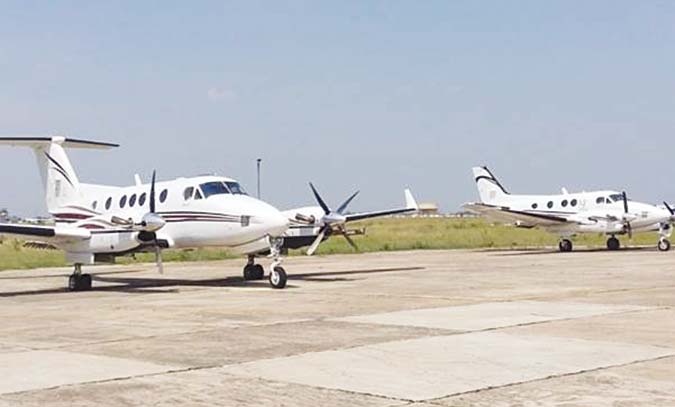
During Sri Lanka’s inter-monsoonal period many individuals believe they can predict rain by ‘feel’. On the west coast, the high humidity that induces profuse perspiration in mid-morning is a sure indication of precipitation in the evening. Unfortunately, despite the symptoms rain isn’t forthcoming.
An observer looking eastward (inland) from the west, sees fair weather cumulus clouds that are too small to produce rain. The problem is caused by high humidity in the atmosphere, yet not enough nuclei of small particles of dust or smoke for rain drops to condense around. When water condenses from vapour to liquid there is release of latent heat, making the cloud warmer than the surrounding atmosphere. That causes the cloud to rise, developing vertically to a height of 50,000 feet on occasion, resulting in so-called ‘towering’ cumulus clouds that produce heavy rain.
When this does not occur, the solution is to artificially add, or ‘seed’, small particles of dry ice, salt and silver iodide into the atmosphere. This could be done by exploding skyrockets (fireworks!), or by seeding the clouds using light aircraft.
Since 1983 in Tamil Nadu, India has been deploying a fleet of light aircraft dedicated to cloud-seeding activities, and experimentation on more effective aerial methods of producing artificial rain.
Beechcraft (Raytheon) Super King Air 200 airplane (left) used by India for cloud-seeding and research. Photo courtesy the Indian Institute of Tropical Meteorology (IITM).
Yet the Sri Lankan Department of Meteorology is seemingly inactive in that field of endeavour. The Sri Lanka Air Force (SLAF) has similar aircraft to those used in India to create ‘rain on demand’. Why couldn’t the government have one or more of those airplanes adapted to serve the nation during adverse, drought-stricken times? Alternatively, if assistance is sought from India, data and research findings could be exchanged between our country and its near-neighbour.
Sure, times are hard and it is going to be expensive. But if the President cuts down on his international travel and sends his diplomats instead, Sri Lanka could find all the money it requires for cloud seeding. The rain produced will cool down a part of the Island. It will also clear the pollution that is created over Sri Lanka by India. Or, do we just grin and bear the heat?
Guwan Seeya
-

 Sports6 days ago
Sports6 days agoPushpakumara, Herath win Cross Country Championships
-

 Foreign News6 days ago
Foreign News6 days agoPakistan accused of killing eight women and children in Afghanistan air strikes
-

 Features3 days ago
Features3 days ago24-year-old collective agreement had to be honoured and precedents followed: CBSL Governor
-

 Business2 days ago
Business2 days agoDreamron Group celebrates 25 years of generating foreign revenue for Sri Lanka
-

 Business1 day ago
Business1 day agoPan Asia Bank powers ‘Dear Father’
-

 Business6 days ago
Business6 days agoSynex Group’s foreign operations net 60% of its total turnover
-

 Features3 days ago
Features3 days agoVariety is the spice of life…
-

 Editorial6 days ago
Editorial6 days agoBasil’s switcheroo and headless chicken














